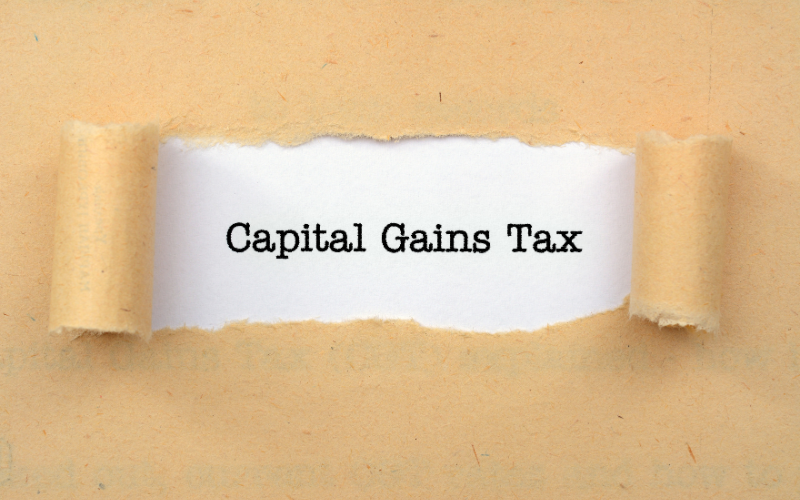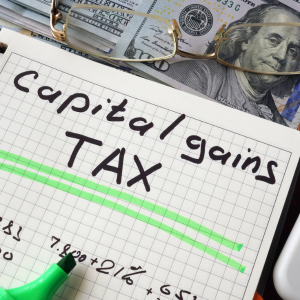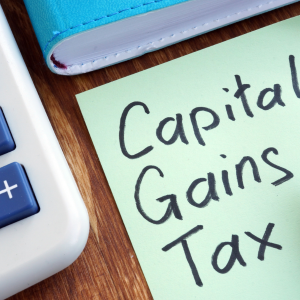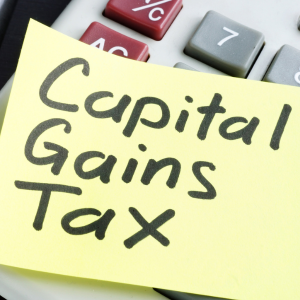
When you sell a house in Cullman, AL, it can be hard to keep track of all the rules about capital gains tax. Capital gains tax is a difficult subject. This guide aims to simplify the process and provide you with useful tips on how to potentially lower or avoid this tax after you sell your home. If you want to get the most money when you sell your Alabama home, you need to know the exact tax effects. Contact us to learn more about how individuals who own their homes can fulfill their tax responsibilities and comply with Alabama’s tax laws by considering several key factors, taking advantage of available tax breaks, and adhering to the relevant regulations.
Key Highlights
- Understanding capital gains tax in Alabama is crucial for maximizing profits from property sales and ensuring IRS compliance.
- Calculating capital gains involves considering the sale price, purchase cost, and any improvements, which affect taxable income and overall tax liabilities.
- Primary residence exemptions can allow homeowners to exclude substantial gains, thereby significantly reducing their taxable income.
- Strategically timing property sales and leveraging tax incentives can minimize capital gains taxes and enhance financial outcomes.
- Utilizing Alabama’s specific tax deductions and credits can effectively lower capital gains tax liabilities for property sellers.
Understanding Capital Gains Tax in Alabama
Find out about Alabama’s capital gains tax before you sell your home there. This tax could change how much money you get when you sell your house. Who charges these fees? People in Cullman, AL, who want to sell their homes need to know. To understand capital gains tax, you need to know about tax rates, tax rules, and tax breaks. After you sell your house, these facts can help you keep track of the money you owe in taxes. They might even help you avoid having to pay a lot of taxes. To make your tax plans work better, learn more about how the capital gains tax changes, especially when you sell a house.
What Triggers the Gains Tax on Property Sales?

Alabama property sellers need to understand what triggers the capital gains tax liability. The tax is due when the price you sell something for exceeds the price you paid for it. This is referred to as a gain, and it is taxed as income. Long-term rates are usually cheaper for homes that have been owned for more than a year, while short-term rates are higher for homes that have been sold within a year.
Your responsibility is also affected by the type of property you own. Some exemptions may be available for primary homes, but the rules are stricter for commercial or investment properties. Homeowners who meet the requirements for ownership and residency may be eligible to deduct a significant portion of their gain. This is a big plus for sellers in places like Cullman, AL.
Besides state laws, federal plans such as the IRS Section 1031 exchange allow people to delay paying taxes on the sale of business properties. Planning for time, property type, and tax breaks can help you maximize your tax benefits. Consulting with tax experts is the best way to ensure you’re following the rules and minimizing your tax obligations.
Calculating Capital Gains from a Home Sale
If someone in Cullman, AL, wants to sell their house, they need to know how to figure out their capital gains. Understanding how these gains are calculated will help you track your potential tax liabilities. The amount sold and the tax rate are two factors that determine the amount of capital gains tax due. Capital gains taxes can be complex and challenging to understand. Homeowners can gain a better understanding of them by learning how the tax rate is determined and how the sale price affects the amount of tax that needs to be paid. Knowing this can make a significant difference in the financial success of real estate deals and their planning.
How Is the Capital Gains Tax Rate Determined?
A big part of the tax you have to pay when you sell your Cullman, AL, house faster is the capital gains tax rate. This rate is based on how long you’ve owned the asset, how much income you need to tax, and other federal and state tax rules. These rules are very important if you want to sell your home in Cullman, AL. You won’t get caught because of them.
How long you keep something is very important. Most of the time, homes that have been owned for more than a year have lower rates. Homes that sell quickly tend to have higher short-term rates. You may pay more tax if you own things and grow your business. Long-term rates can make a big difference in this.
There’s also the money issue. Your rate may increase or decrease based on the amount of federal tax you pay. It’s more common for wealthy individuals to pay more than those who are less affluent. Individuals who own and use their primary residence in specific ways may also be eligible for substantial tax benefits. You need to be familiar with both state and federal laws, plan, and explore tax breaks or other benefits that may be available due to these rules. Tools you can trust, and tax pros can help you determine what steps to take to lower your bills.
Impact of the Sale Amount on Tax Liability
The sale price, also known as the “end transaction price,” is a significant component of the Cullman, AL property tax you must pay. The “realized gain” is the difference between the amount the land sold for and the amount it cost to buy. Any changes made are also included. Capital gains tax may go up as the gain grows if you don’t get any tax breaks or money back. If someone sells their house for a substantial amount, their tax rate may increase. This can change both their regular income tax and their tax on gains from selling assets. If you live in your primary residence in Alabama and own it, you may be eligible for tax breaks. For example, you might not have to pay taxes on up to $250,000 of gain ($500,000 for married couples).
People whose homes have increased significantly in value can receive a substantial tax break due to this rule. Time is also important. You might make more money if you sell when the market is good, but you might also have to pay more taxes. It is possible to pay the least amount of tax by being smart with your money. Like, you can trade investment properties for other things of similar value, get credits to even out gains, or limit the amount of money you can make in the year you sell something. With the help of a tax agent, people can make the most money and pay the least amount of tax.
Exemptions for Your Primary Residence

When you sell your Alabama home, knowing the deductions you can use is important if you want to lower or avoid paying capital gains tax. Homeowners in Cullman, AL, can especially benefit from these rules, as they can help increase the sale price of their home by lowering their tax bills. Meeting certain requirements set out in tax laws is the key. If these conditions are met, it can result in significant tax savings. Find out how you can use these exemptions to protect your financial interests when you sell your home, which will lead to a better financial result.
Meeting Criteria to Avoid Capital Gains Tax on Your Home
If you want to keep your primary residence in Alabama, especially in Cullman, and not have to pay capital gains tax on it, you must meet certain IRS exemption requirements. You must have owned the home for at least two years and lived in it as your main home for at least two of the five years before the sale. Single taxpayers can exclude up to $250,000 in income, and married couples filing jointly can exclude up to $500,000. These rules encourage people to own and use their homes for an extended period, which helps them avoid large tax bills when the value of their homes increases. Federal laws set the major rules, but Alabama’s tax system may have its own rules that affect your overall liability.
Talking to a tax expert who knows the local rules and the market can help you make good plans. You can also pay less in taxes if you time your sale based on both the strength of the market and your own personal funds. For investment properties, a 1031 exchange and smart planning for reinvestment can help you delay paying taxes and keep more of your gains. Last, keep detailed records of all the changes you make to your house. The costs of improvements, such as adding rooms or installing new heating systems, raise the property’s base value. This lowers the amount of taxable gain you have when you sell it. By utilizing these exemptions, timing tactics, and meticulous paperwork, Alabama homeowners can maximize their financial benefits, reduce their tax burden, and enhance their financial situation after selling their home. North Alabama House Buyer can help guide you through this process to ensure you take full advantage of every opportunity available.
Strategies to Reduce Capital Gains Tax When You Sell
Capital gains taxes can be very high in Alabama when you sell your home, but they can be kept to a minimum with some planning. You can pay less in capital gains tax if you carefully plan when you sell your property and take advantage of Alabama’s unique tax breaks. Knowing these strategies will help you keep as much of the sale price of your home as possible. By examining these tactics, you can also gain insight into the important ways federal and state tax laws intersect. This will help you handle the effects of taxes correctly and protect your gains.
Timing the Sale for Maximum Tax Benefits
How much capital gains tax you pay will depend on when you sell your home for cash in Huntsville, AL. You need to consider both the market and your own finances when you sell at the right time. If you keep a property for more than a year, you will pay less in long-term capital gains tax. On the other hand, taxes may go up during short-term deals. Also, market trends are significant. However, be very careful not to overpay in taxes if you sell at a peak. You may receive the most money back, but your income may also be subject to higher taxes.
Just as important is the right time for your own money. Your tax rate may go down if you sell during a year when you make less money. There may also be main residence exclusions for homeowners. These let them keep up to $250,000 in gains ($500,000 for couples) without paying taxes on them, as long as they meet certain residency requirements. If you time a sale with this provision, you can make a lot more in net income.
Last but not least, keep an eye on changes to the law because new tax rules can affect your state and federal debts. If you work with both tax and real estate experts, you can make sure that your timing plan hits a good balance between market opportunity and tax efficiency. This will protect the sale’s profit.
Utilizing Alabama’s Tax Incentives

If you use certain tax breaks, you may pay less in capital gains taxes when you sell your Alabama home. Taxes will decrease, which is beneficial for businesses and capital. When you take out the prices of things like making changes and improvements to your home, your taxable income goes down. Write these numbers down if you want to save the most money. People who sell goods may also receive financial incentives or tax breaks from the government. In certain areas, individuals may be eligible for tax breaks if they meet specific growth objectives. Right away, this cuts their tax bills.
The government sets a main property cap that lets people claim gains of up to $250,000 ($500,000 for couples). Swaps of the same kind can be done by individuals who own 1031 exchanges. With these, they can buy homes like these and make money without having to pay taxes on it right away. Alabama can maximize these opportunities if the government creates rules and plans tailored to its specific needs. They can help owners maximize tax breaks, refunds, and savings by understanding the local tax rules. Plan and save money in Alabama and other places. In the long run, you can also make more money.
Sell your home fast without the hassle of repairs. At North Alabama House Buyer, we pay fair cash, handle every detail, and make the process straightforward. Call (256) 824-9181 today for your no-obligation cash offer!
FAQs:
What triggers the capital gains tax when selling property in Alabama?
Capital gains tax is triggered when the sale price of your property exceeds its original purchase price. This gain is considered taxable income. Factors such as property holding period, type of property, and applicable tax exemptions play a significant role in determining your tax liability.
How can I avoid or minimize capital gains tax on my primary residence in Alabama?
If your home has been your primary residence for at least two of the five years preceding the sale, you may qualify for an exemption allowing you to exclude up to $250,000 of capital gains if single, or $500,000 if married filing jointly. Meeting these residency and ownership criteria is crucial to minimizing tax liabilities.
What factors affect the calculation of capital gains tax in Alabama?
The capital gains tax calculation takes into account the holding period of the property, the sale price, the original purchase cost, and any improvements made. Properties held for over a year are subject to lower long-term capital gains tax rates, which encourages long-term ownership.
How does the sale timing influence capital gains taxes in Alabama?
Selling your property during favorable market conditions can increase your sale amount, potentially pushing your overall taxable income into a higher bracket. Timing your sale to align with a lower annual income can reduce the capital gains tax rate applied.
What specific tax incentives does Alabama offer to reduce capital gains tax?
Alabama promotes property investment through deductions for property improvements and potential tax credits. Keeping accurate records of improvements allows these expenses to offset taxable gains, effectively lowering your capital gains tax burden.
Helpful Cullman Blog Articles
- Capital Gains Tax After Selling a House in Cullman, AL
- How to Sell a Fixer-Upper House in Cullman, AL
- How to Sell a House When Relocating in Cullman, AL
- Can You Sell Your House with a Quitclaim Deed in Cullman, AL
- How Much Equity Do I Need to Sell My House in Cullman, AL
- How Long Can Seller Stay in the House After Closing in Cullman, AL
- How Long to Move Out After Foreclosure Auction in Cullman, AL
- How to Sell Your Parents’ House in Cullman, AL
- Selling a House to a Family Member in Cullman, AL
- Who Pays Taxes When Selling a House in Cullman, AL
- Selling a House with Solar Panels in Cullman, AL
- Selling Your House to a Relocation Company in Cullman, AL

